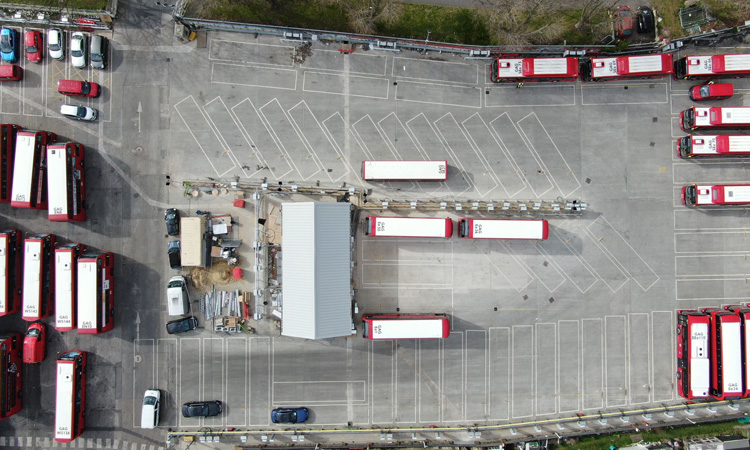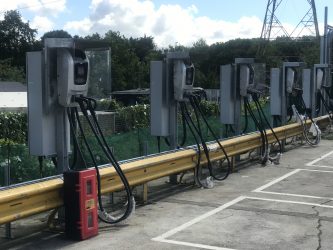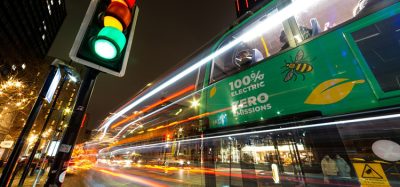London bus garage to become “world’s largest vehicle-to-grid site”
- Like
- Digg
- Del
- Tumblr
- VKontakte
- Buffer
- Love This
- Odnoklassniki
- Meneame
- Blogger
- Amazon
- Yahoo Mail
- Gmail
- AOL
- Newsvine
- HackerNews
- Evernote
- MySpace
- Mail.ru
- Viadeo
- Line
- Comments
- Yummly
- SMS
- Viber
- Telegram
- Subscribe
- Skype
- Facebook Messenger
- Kakao
- LiveJournal
- Yammer
- Edgar
- Fintel
- Mix
- Instapaper
- Copy Link
Posted: 13 August 2020 | Sam Mehmet (Intelligent Transport)
The project will redistribute energy generated by buses not in use and provide services for the national grid, regional distribution network operators, bus operators and transport authorities.


A North London bus garage is set to become a “virtual power station”, generating electricity from buses when not in use. Following a transformation to garage nearly 100 new zero-emission electric buses, Northumberland Park is now one of the biggest electric bus facilities in Europe. The project, called Bus2Grid, is believed to be the world’s largest vehicle-to-grid (V2G) trial site.
V2G technology enables energy stored in an electric vehicle’s battery to be fed back into the electricity network. By recharging when demand is low and putting energy into the grid when it is high, V2G is designed to manage the peaks and troughs, balance the network and make it more efficient.
The Bus2Grid project will be led by SSE Enterprise in partnership with the Mayor of London, Transport for London (TfL) and Go-Ahead London. The initial trial will use the batteries of 28 state-of-the-art double decker buses, capable of returning over 1MW energy to the grid.
Niall Riddell, Smart Systems Innovation Sector Director for SSE Enterprise, said: “Central to the challenge of decarbonising our transport and achieving climate change targets is how we can optimise the existing flexibility within the energy system. Developing a charging infrastructure that operates in two directions so that batteries can give back as well as take from the grid is an important part of this.


Dr Stephen Hall from the University of Leeds, one of the project partners, said: “Electrifying transport will have huge benefits for air quality in cities and for meeting our climate change commitments. Large electric vehicles like these can also support the energy system, but this means creating new ways of working between energy utilities, grid managers, and transport providers. This project is creating new business models to make this happen.”
Ian Cameron, Head of Innovation at UK Power Networks, said: “We believe buses have a big part to play in rolling out low emission vehicles. They offer huge opportunities to contribute towards the drive to improve London’s air quality.
“A fleet of bus batteries harnesses large amounts of electricity and they are habitual, with regular and predictable routes, driving patterns and timings. That means we can easily predict and plan for how we can use any spare electrical capacity they can offer. For example, we could use them as energy storage devices that could add capacity and help us to increase the volume of renewable energy exported onto the network when supply might otherwise be exceeding demand.”
The three-year trial is funded by the Department for Business, Energy and Industrial Strategy (BEIS) and the Office for Low Emission Vehicles (OLEV) with the support of Innovate UK. The Bus2Grid project is being led by SSE Enterprise and supported by a partnership including bus manufacturer Build Your Dreams/Alexander Dennis Limited (BYDADL), TfL, bus operator Go Ahead Group, electricity distribution network UK Power Networks, Leeds University and Scotland based Alexander Dennis with aggregation of the buses supported by Origami.
Related topics
Alternative Power, Fleet Management & Maintenance, Infrastructure & Urban Planning, Sustainable Urban Transport
Related modes
Bus & Coach
Related cities
London
Related organisations
Alexander Dennis, Build Your Dreams/Alexander Dennis Limited (BYDADL), Department for Business Energy and Industrial Strategy (BEIS), Go-Ahead Group, Innovate UK, Leeds University, Office for Low Emission Vehicles (OLEV), Origami, SSE Enterprise, Transport for London (TfL), UK Power Networks
Related people
Dr Stephen Hall, Ian Cameron, Niall Riddell







